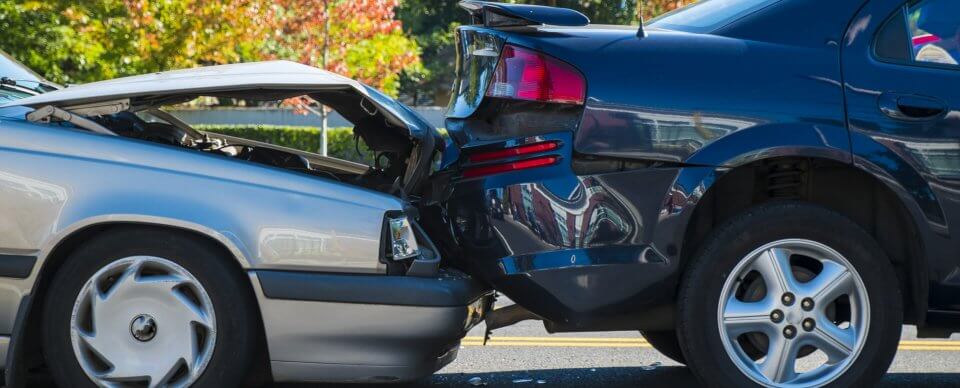
You are driving in an unfamiliar area when the traffic unexpectedly slows due to a red light ahead and you accidentally rear-end the vehicle in front of you. Your required liability auto insurance will cover the damage to the other driver’s car, but what if you have significant damage to your car? Liability insurance will not cover damages to your vehicle if you were at fault. This is where collision insurance comes in.
What is Collision Insurance and What Does Collision Insurance Cover?
Auto collision insurance is the coverage that will help to cover costs to repair or replace your car if you are in an accident regardless of who is at fault. Collision insurance covers damage to your vehicle that results from any collision whether it is with another vehicle or an object such as a tree or a building.
How Does Collision Insurance Work?
There are two terms that are important to understand when it comes to how collision car insurance works: deductible and limit.
The deductible is the amount you will pay out-of-pocket when you file a claim. Deductible amounts vary and typically can be selected by the insured. While a lower deductible means you will have to pay less when you file a claim, it also means higher insurance premiums.
The limit refers to the total amount your policy will pay for damages related to a covered claim once you pay your deductible. A typical collision coverage limit is the actual cash value of a vehicle. The actual cash value is calculated by subtracting depreciation from the replacement cost. It represents the amount that your vehicle would currently be worth if you sold it as is.
Collision vs. Comprehensive
Collision and comprehensive insurance both will help to pay for damages to YOUR vehicle, but the coverage that is used is determined by how the damage occurred. Collision insurance would cover an incident in which your vehicle collided with another vehicle or object. Comprehensive coverage would protect you if your car was damaged in an incident not related to a collision such as a fire, theft, vandalism, a falling object or natural disaster, among other things.
Should I Add Collision Insurance?
When you purchase auto insurance, collision coverage will likely be required if you are leasing your vehicle or if you have a loan on it. If you do not purchase collision insurance or let it lapse, your lender or leaseholder will purchase the coverage for you and include the cost into your loan or lease payments. This is known as force-placed insurance and it can be significantly more expensive than maintaining the coverage through your insurance provider. Therefore if you are required to have collision insurance then it is in your best interest to obtain and maintain it.
If you own your car outright, collision insurance would be an optional coverage. If you are not sure whether or not to purchase it as an optional coverage, you should consider the cost you would have to pay out of pocket to replace your vehicle if it is totaled in an accident.
The guidelines on whether or not to obtain collision insurance as an optional coverage vary, but overall it is recommended that you consider the age and current market value of your vehicle. Obtain quotes on the annual cost to maintain collision coverage to decide whether the payout for your vehicle is worth the premium.
Do collision and comprehensive have to be purchased together?
If your vehicle is financed through a lease or loan, collision and comprehensive coverage are usually both required. While collision and comprehensive insurance are separate coverage options, insurance companies typically prefer that an insured have both. There are instances when they can be purchased separately, but having both will insure that a driver is fully protected.
Liability insurance will help pay for the damage to another individual’s car or property if you cause an accident, but what about the damage that it causes to your vehicle? Consider collision coverage to help protect your vehicle and your wallet in the event of an accident.
Are you paying too much for auto insurance? If you’re not insured by Freeway Insurance, chances are you’re paying more than you need to. Get a free car insurance quote online or over the phone at (800) 777-5620 and find out how much you can save.



